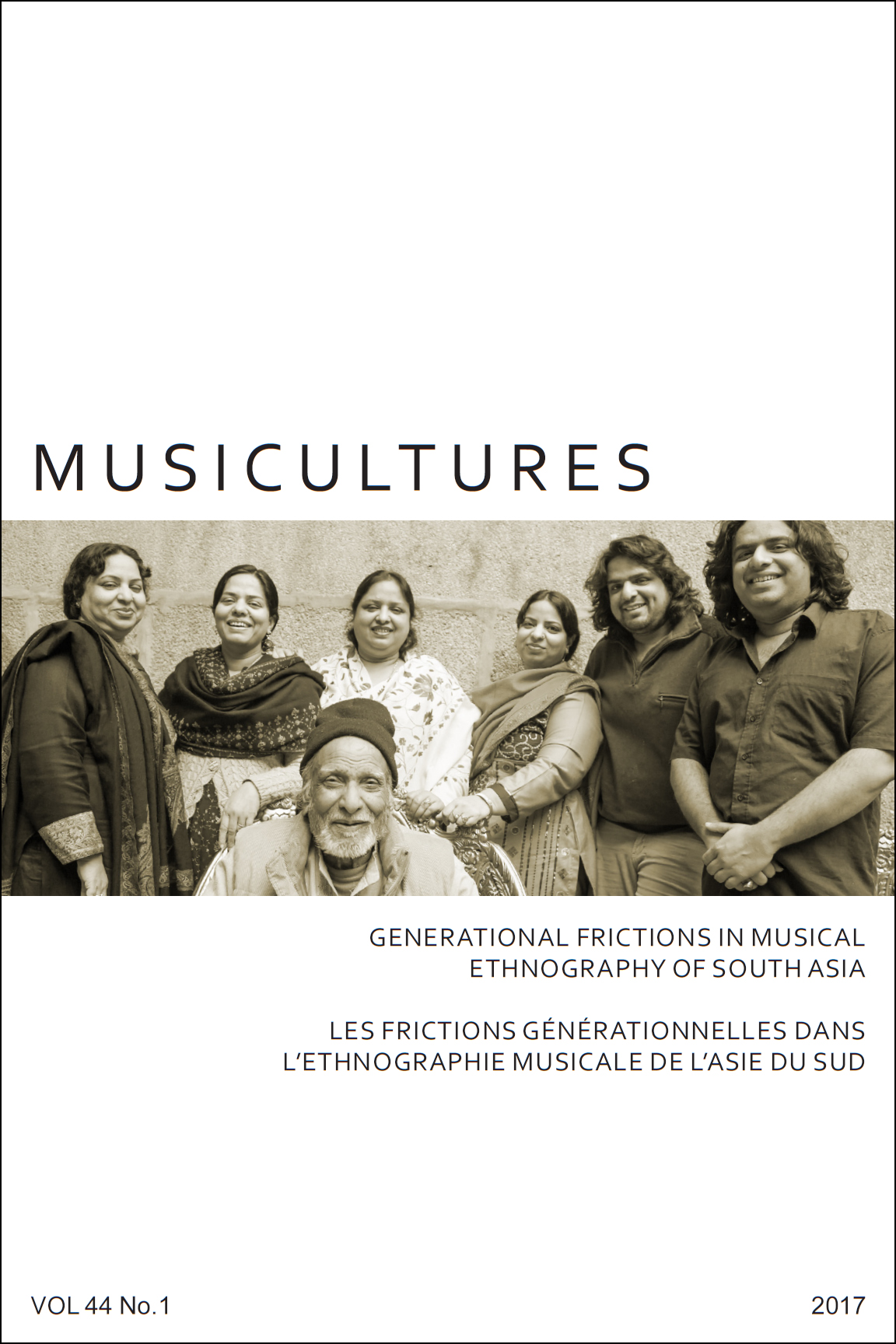Abstract
Abstract: Contemporary India is marked by salient aspirational discourses, yet not everyone is understood to be capable of aspirational transformation. This article focuses on middle-aged “housewives” studying Hindi film song in a Mumbai music institute. Analyzing the professional visions they held alongside the domestic constraints they faced, I show how gender, generation, and life stage complicated their aspirational mobility. Yet, even as these housewives were marginalized within “Aspirational India,” they used training in Hindi film song to remake themselves as singers and expressive selves. This work of musical self-transformation, I argue, made them visible as aspirational subjects in liberalizing India.- The author retains copyright over the work.
- The author grants the journal owner (The Canadian Society for Traditional Music / La Société canadienne pour les traditions musicales) an exclusive license to publish the work.
- The author may post a pre-print or post-print version of the work (see definitions below) on a personal website for up to twelve months after the work is published in MUSICultures. After twelve months, the pre-print version must be replaced with the published version.
- The author may deposit the published PDF of the work in a non-commercial online repository twelve months after the work is published in MUSICultures, or any time thereafter.
- Any such deposit must include a link to the work on the MUSICultures website, e.g., https://journals.lib.unb.ca/index.php/MC/article/view/19996
A pre-print is a work-in-progress—a contribution not yet accepted, or perhaps even submitted, to MUSICultures.
A post-print is the version of a contribution after peer review and acceptance by MUSICultures, with revisions completed.
The published version is the PDF file of a contribution as it appears in MUSICultures.
Please note that academia.edu and ResearchGate.com are both for-profit repositories; authors may not deposit the published PDF of the work in these repositories until after the journal’s embargo period.
For permission to reprint or translate material from MUSICultures, please contact Heather Sparling, General Editor of MUSICultures (heather_sparling@cbu.ca).

